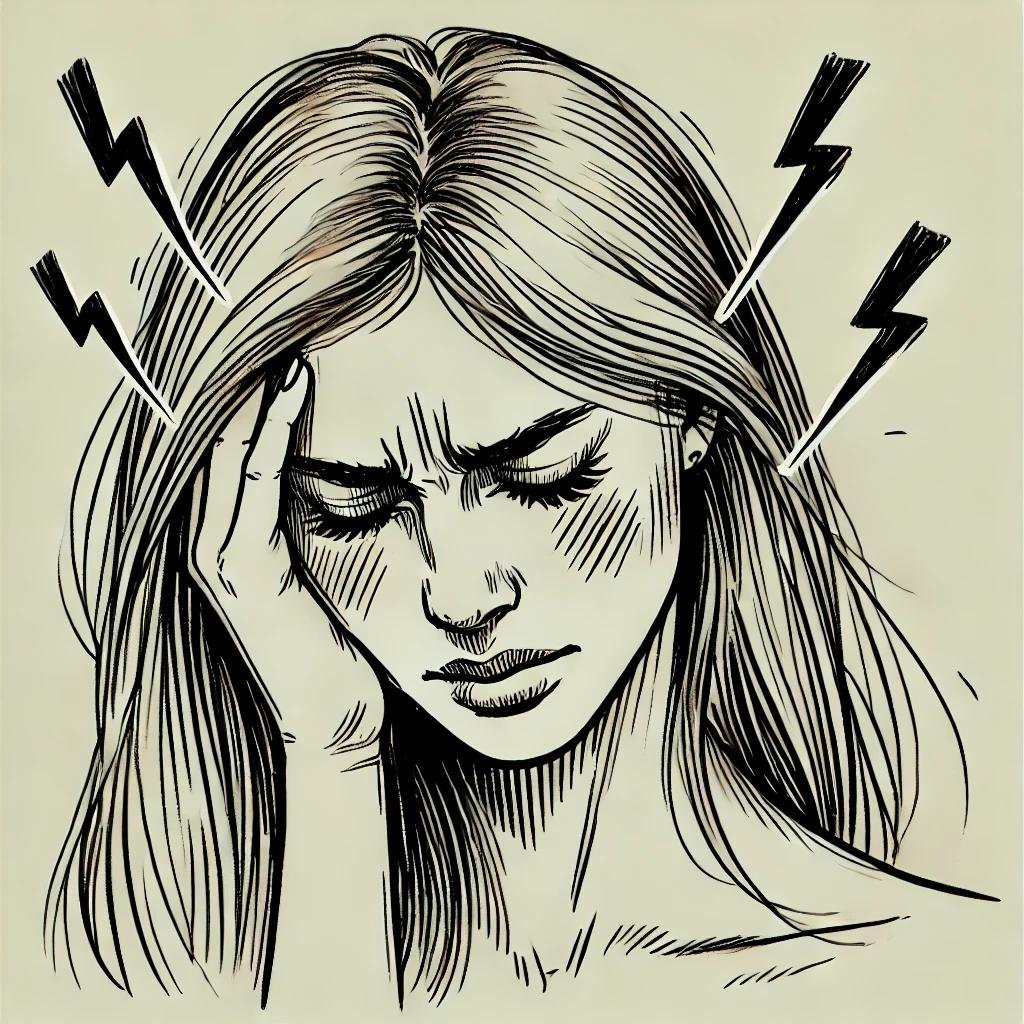Atypical facial pain
is a chronic condition characterized by persistent pain in the face or jaw, often without a clear cause or trigger. Unlike more common types of facial pain, AFP does not follow the typical patterns of nerve pain, and it may be described as a dull, aching, or burning sensation. The pain may affect a wide area of the face and is often difficult to pinpoint, sometimes moving from one location to another.
Atypical facial pain differs from trigeminal neuralgia, a condition known for sudden, sharp, electric shock-like pain along the branches of the trigeminal nerve. In trigeminal neuralgia, the pain is usually brief but intense, triggered by simple actions like touching the face, chewing, or speaking. Atypical facial pain, on the other hand, is more constant and lacks these clear triggers. While trigeminal neuralgia typically affects one side of the face in distinct nerve patterns, AFP can be more widespread and diffuse.
Primary stabbing headache, also called "ice pick headache," also differs from atypical facial pain. It involves sudden, short-lived, stabbing pains in the head or face that come and go rapidly, often lasting only a few seconds. These headaches occur randomly and without warning, whereas AFP is more constant and persistent. The unpredictability and sharpness of primary stabbing headaches contrast sharply with the ongoing, dull pain seen in atypical facial pain.
Dr. Cohen has extensive experience in treating atypical facial pain, as well as various forms of short and sudden headaches. Treatment options include lifestyle modifications, medications, and alternative approaches, all tailored to meet the individual needs of each patient.
Procedures to treat atypical facial pain include:
Botox injections
Facial nerve blocks (trigeminal nerve)
Occipital nerve blocks
Sphenopalatine ganglion blocks
Neuromodulation
and more

